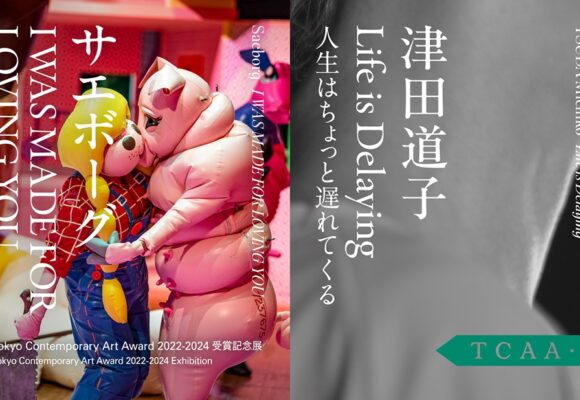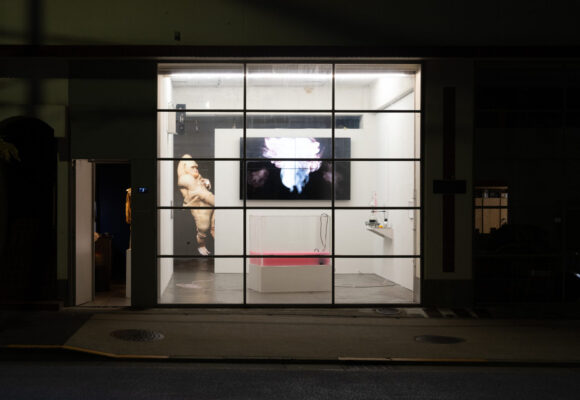Festival director for the Image Forum 2001-10, presently active as a freelance curator. Has been in charge of curation at the Aichi Triennale (2013), Tokyo Metropolitan Teien Art Museum (2015/16) and Aomori Museum of Art (2017/18), and continues to be involved in various events at alluring hidden locations in Tokyo, such as ”Track Top Tokyo” (2016), ”Toshi bosai boot camp” (2017), and “Meguriai JAXA” (2016-18).
© E.x.N K.K.
I watched Aki Kaurismäki’s “Le Havre,” a conscientious kind of drama revolving around African immigrants stranding in Le Havre, at the International Film Festival Rotterdam back in 2012. Miraculously, contemporary artist Nicolas Provost had concurrently presented his own depth analytical take on the same subject of immigration in the form of “The Invader,” a somewhat forced love story about immigrants invading Europe. Rather ironically, black people were largely absent at either screening – quite in contrast to the clientele at the coffee shop across the street…
Moving over to Asia. The movie “Passage of Life,” the third product of Japanese-Myanmarese collaboration, is shown at cinemas in Tokyo from October 6, just after premiering at the Wathann Filmfest in Myanmar a few days earlier. I had the chance to be at the crowded venue to watch the family story that unfurls between Tokyo and Yangon.
Kaung Myat Thu and Htet Myat Naing are two little boys who live a quiet life with their mother, Khin Myat Thu, in an apartment in Tokyo. The mother has a hard time settling down in Japan and longs for her native Myanmar, while father Issace keeps looking for ways to survive here even after his application for recognition of refugee status was rejected. The children are more proficient in the Japanese language than their parents, and when the short-lived intimate home life begins to crumble on the boundary between the languages, the family finds itself in an uncertain situation… The setting of children complaining about “the adults’ lack of understanding” and adults lament “the state’s lack of understanding” suggests that Japan is still a developing nation in terms of distinguishing between citizens, immigrants and refugees.
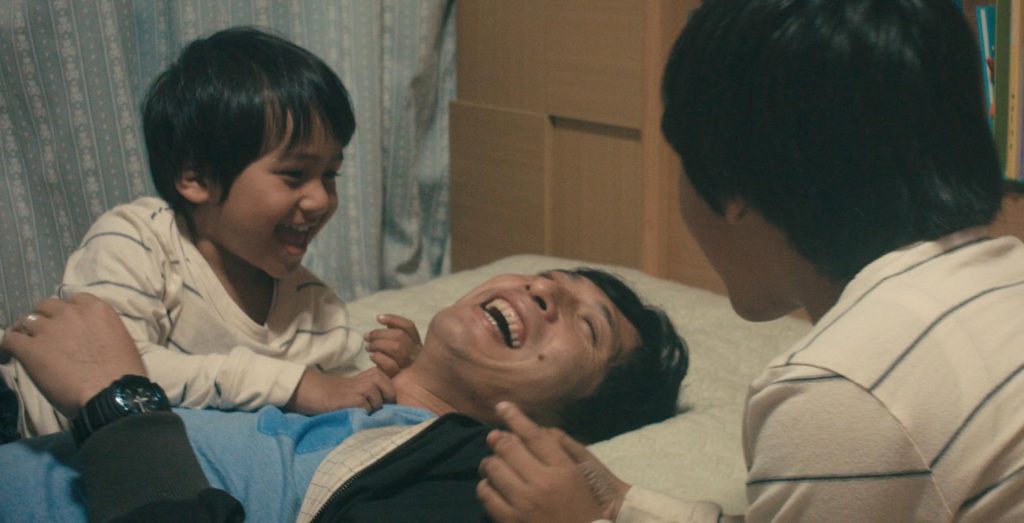
© E.x.N K.K.
The actors who play the brothers and their mother are a family also in real life, while the father is a Myanmarese who had previously experienced all kinds of difficulties in Japan. For all of them, this is their first appearance in a movie. It took director Akio Fujimoto about five years to realize his plans and actually make the movie, whereas the most amazing thing is that Issace came to Japan only one month before the start of shooting! Laughing, crying, falling ill, or standing still in amazement – their performance comes across with compelling reality that forms the core of this fictional story. At the festival’s teach-in, the movie was compared to Hirokazu Koreeda’s work, and the character of Kaung was likened to that of Yuya Yagira in Koreeda’s “Nobody Knows.”
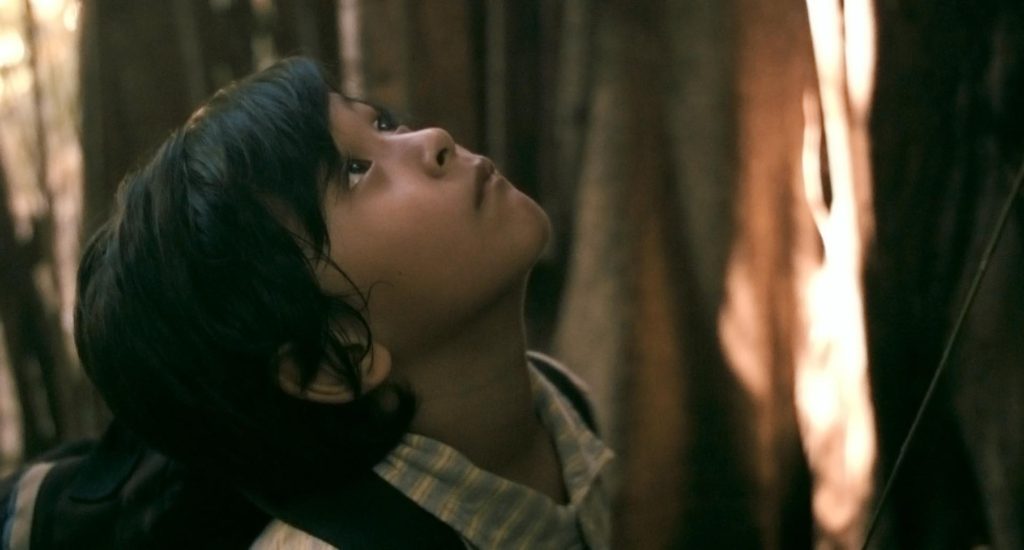
© E.x.N K.K.
A word on Kaung’s voice. In both Japanese and western cinema I have frequently experienced how, in crucial scenes, serious performers and child actors deliver their signature phrases so loud and clear that it ruins the overall tone of the entire film, but here I witnessed for the first time in a while a truly thrilling kind of behavior. Aren’t children supposed to be creatures that are always unambitious, unable to say important things in important moments, and constantly look down insecurely with no confidence in the first place? This movie moderately blurs such sensitive topics as “foreign residents in Japan” or “returning immigrants,” and by illustrating the voices of people left with no mother tongue (along with the difficulty to understand them), it functions as a universally applicable “family tale” beyond the boundaries of one specific problem.
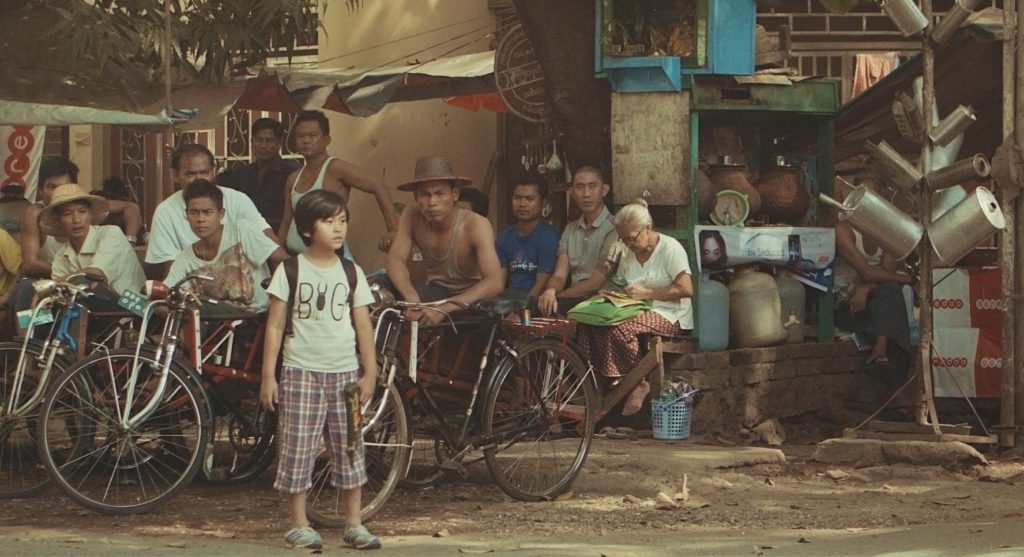
© E.x.N K.K.
In a way it works like “Nami no Oto” (by Ko Sakai and Ryusuke Hamaguchi, 2011), a documentary film on the events of March 2011 that paints a somewhat universal picture of “Japanese people that suffered damage” through dialogues between victims only, which allows the viewer to focus on their expressions and the tones of their voices as they speak.
Translated by Andreas Stuhlmann
INFORMATION
Passage of Life
Cast: Kaung Myat Thu, Khin Myat Thu, Issace, Htet Myat Naing, Yuki Kitagawa, Niina Kuromiya, Kanji Tsuda
Screenplay/ Director/ Film editor: Akio Fujimoto
2017/ Japan-Myanmar/ 98 min.
Produced by E.x.N K.K.






